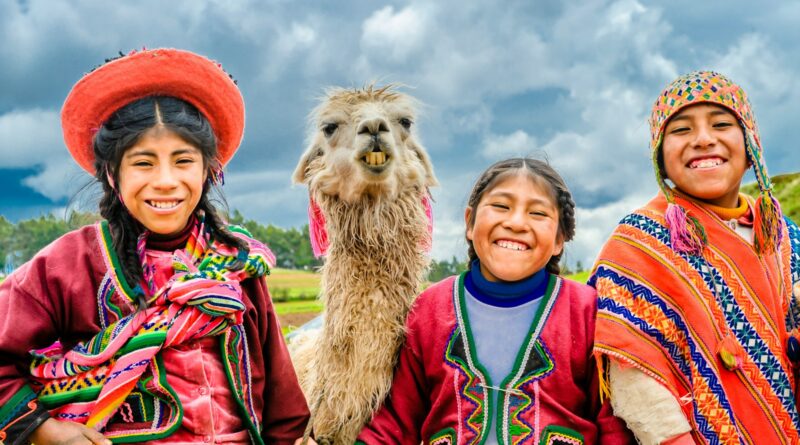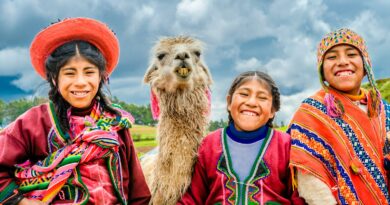Spiritual Tourism in Cusco: What to Know
Spiritual Tourism in Cusco: What to Know
Spiritual tourism in Cusco is quickly emerging as a major travel trend, drawing adventurers and seekers from all over the globe. More than a gateway to Machu Picchu, Cusco holds deep spiritual significance for both the indigenous people of the Andes and visitors in search of spiritual growth and transformation. From the breath-taking landscapes of the Sacred Valley to centuries-old rituals and sacred ruins, this unique travel experience delivers not just adventure but profound personal insight. Here’s everything you need to know before setting out on your own spiritual journey to Cusco.
Why Cusco Appeals to Spiritual Travelers
Cusco, the former capital of the Inca Empire, is often considered the spiritual heart of the Andes. Its history, energy, and high-altitude landscapes create a unique environment ripe for reflection and discovery. Locals believe that Cusco, surrounded by sacred mountains known as Apus, is a place where physical and spiritual worlds intertwine.
The city and its surroundings teem with ancient temples, ritualistic sites, and ongoing indigenous traditions. Many visitors come in search of spiritual practices rooted in Andean cosmology, often combined with opportunities to participate in traditional healing ceremonies and meditation.
Transformative Experiences in Sacred Sites
One of the main draws for spiritual tourism in Cusco is access to legendary Inca ruins that go beyond Machu Picchu. Sites like Sacsayhuaman, Ollantaytambo, and Qenko serve not just as archaeological wonders but also as active ceremonial centers. In these places, visitors commonly witness — or take part in — indigenous expressions of gratitude, offerings to Pachamama (Mother Earth), and ritual cleansings.
Other travelers opt for guided treks along energy lines believed to connect these sacred sites. These walks often include periods of mindfulness, group meditations, and shamanic ceremonies, heightening a sense of connection with both nature and ancestral wisdom.
Spiritual Ceremonies: What to Expect
The hallmarks of spiritual tourism in Cusco are ceremonies performed by local shamans or “paqos,” who have preserved ancient traditions across generations. Two of the most popular experiences are the coca leaf reading and the despacho ceremony.
Coca Leaf Reading: Considered a vital tool for communication with the spirits, this practice allows the shaman to “read” a participant’s present situation and offer advice for the future. Visitors are encouraged to approach this with an open mind to fully benefit from the wisdom imparted.
Despacho Ceremony: This is an offering to the Andean deities, particularly Pachamama. Colored flowers, coca leaves, sweets, and small symbolic items are carefully arranged in a ritual bundle. Participants make their own wishes or prayers before the bundle is released to the elements — often by being burned or buried. Most travelers leave these ceremonies feeling uplifted and spiritually “cleansed.”
Spiritual Healers and Alternative Therapies
For those seeking healing or self-discovery, Cusco boasts a range of wellness options grounded in both ancient Andean and modern holistic traditions. Several retreats in and around the city offer:
– Ayahuasca ceremonies (always research facilitators thoroughly for safety and ethical standards)
– Sound healing sessions
– Reiki
– Yoga and guided meditation workshops
Joining such transformative experiences fosters deeper insight and often results in a sense of renewal that lingers long after your travels end.
Integrating Culture and Respect in Your Journey
While spiritual tourism in Cusco presents amazing opportunities, it’s important to approach these experiences with respect. These are not just tourist attractions, but living traditions central to Andean identity. Always seek ethical tour operators who involve indigenous communities and follow their guidelines. Participate with humility, express gratitude, and ask before taking photos during ceremonies.
Additionally, learning a bit of Quechua (the local language) or about Andean beliefs can deepen your interactions with local hosts and enhance your travel experience.
How to Prepare for Your Spiritual Journey in Cusco
Taking part in spiritual practices at high altitude and in unfamiliar environments requires some planning:
– Acclimatize to the elevation: Cusco sits over 3,300 meters (11,000 feet) above sea level. Allow at least two days to adjust before engaging in strenuous activities or ceremonies.
– Assess your intentions: Spiritual tourism is an opportunity for profound growth but can also be emotionally intense. Take time to reflect on your reasons for seeking these experiences.
– Pack appropriately: Bring comfortable clothing, reusable water bottles, a notebook for journaling insights, and respectful attire for ceremonies.
– Research providers: Choose guides and centers with established reputations and ethical standards.
FAQ: Spiritual Tourism in Cusco
1. Is spiritual tourism in Cusco safe?
Yes, if you choose reputable guides and certified practitioners, most spiritual activities are safe. Due diligence is especially important for plant medicine ceremonies.
2. Do I need prior experience with spiritual practices?
No prior experience is necessary. Most ceremonies and retreats are designed for beginners as well as those with established personal practices.
3. What is an Ayahuasca ceremony, and should I try it in Cusco?
Ayahuasca is a traditional Amazonian plant brew with potent psychoactive effects. If you consider participating, prepare thoroughly, evaluate your mental and physical health, and choose a respected, responsible provider.
4. Are ceremonies conducted in English or Spanish?
Some guides and shamans speak English, but many ceremonies happen in Spanish or Quechua. English-speaking facilitators are often available to help explain and guide your experience.
5. Can I join rituals even if I’m not spiritual or religious?
Yes. Many travelers join out of curiosity or cultural interest and still benefit from the immersive nature of these traditions.
6. What should I bring to spiritual ceremonies in Cusco?
Comfortable clothing, water, a small gift of gratitude for the shaman (like coca leaves), and an open mind are recommended.
7. How should I behave during ceremonies?
Show respect by following your host’s guidelines, turning off your phone, avoiding disruptive behavior, and refraining from taking photos unless permitted.
8. Is booking in advance necessary?
For popular retreats, especially involving plant medicine, book well in advance. Simpler ceremonies or short workshops may have more last-minute availability.
Spiritual tourism in Cusco isn’t just a travel trend — it’s a doorway to deeper understanding, not only of Andean culture but also yourself. With the right preparation, open-mindedness, and respect, your journey through the ancient heart of the Andes will be truly transformative.


